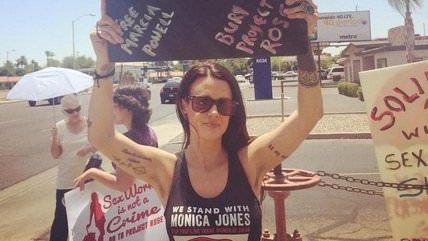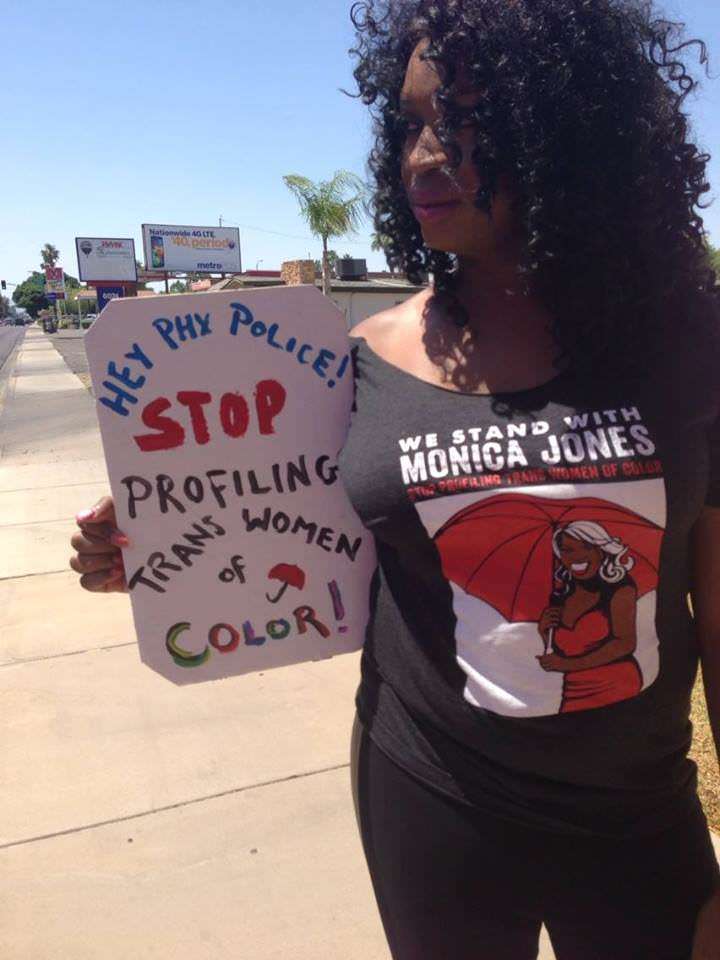Concrete Consequences From Sex Work Stigma
Criminalization really isn't the root of the problem that sex workers face.


Discussions of sex work in general, and prostitution in particular, often focus on questions of legality and prosecution. Should prostitution be decriminalized? Should it be regulated? Should we focus on "end-demand" laws, which prosecute johns more vigorously?
These are obviously important issues. Criminalization threatens the safety of sex workers in numerous ways—they can't report abuse or violence, can't screen clients effectively, and, of course, can be seized (and even abused) by police. But criminalization really isn't the root of the problem that sex workers face. Sex workers are despised in part because they're criminalized, but they're also, and perhaps first, criminalized because they're despised.
Decriminalizing prostitution without reducing any of the stigma surrounding it wouldn't necessarily stop police harassment of sex workers. As Melissa Gira Grant, author of Playing the Whore, told me, "even if all prostitution-related offenses were lifted tomorrow in the United States, we will continue to live with a criminal punishment system that targets women," especially poor, black, transgender, and gender-nonconforming women. If you get rid of prostitution offenses, police could hassle sex workers for things like loitering or jaywalking. There's always a way to police people if society and authority are determined to police them.
If prostitution were legal, and police continued to harass, arrest, or abuse sex workers (and especially black sex workers), who would stop them? Laws are important, but if the police and the society that controls the police have decided that your life is worthless, they'll find a way to let you know, whatever the legal code says. It's not supposed to be legal for police officers to kill black people arbitrarily; but as the #BlackLivesMatter movement has highlighted, the law doesn't matter much when stigma against black people is so great that you can't get a grand jury to indict.
Stigma against sex workers extends to those engaged in legal activities, such as making pornography, and makes them vulnerable in a number of ways. The 2012 documentary After Porn Ends chronicles numerous examples of discrimination faced by retired porn performers. Adult star Houston lost her real-estate job when her employers found out about her porn career. Another retired performer, Randy West, is financially secure and wants to donate his money to worthy causes—but charities won't take his money. More recently, when Belle Knox, a Duke University freshman, was publicly outed as a porn performer, she was bullied and harassed: "I was called a 'slut who needs to learn the consequences of her actions,' a 'huge fucking whore,' and, perhaps the most offensive, 'a little girl who does not understand her actions.'"
Financial institutions often refuse to provide services for sex workers—again, even when the individuals are doing nothing illegal. Last year, for example, Layton Benton and several other adult film stars had their Chase bank accounts closed without warning or much explanation. Benton had similar problems with Paypal, which accused her of fraud after she had a wire-transfer payment for a video. After the account was closed, she couldn't access the money for 180 days, which means she still hasn't received the funds. She won't until March.
And stigma against sex work extends even to people who aren't doing sex work as it's usually understood. Cindy Gallop is founder of MakeLoveNotPorn.com, a site dedicated to exposing sexual myths found in porn and teaching people about "real world" sexuality. The site is centered around a video-sharing platform, in which users can create their own sex videos, sharing in rental profits when other people watch them. Gallop sees her competition as Facebook and Youtube, rather than other porn sites. Nonetheless, she told me, financing has been almost impossible.
"I had no idea when I embarked on this venture that our team and I would have to fight every day to build it," said Gallop. "Every piece of business infrastructure, every other startup can at least take for granted. We can't because the small print always says, 'no adult content.' And this is all-pervasive."
Banks, Paypal, credit card companies; none of them want anything to do with her. "The fundamental obstacle for us is what I characterize as 'fear of what other people will think,'" Gallop said.
Obviously, being unable to fund your startup is much less traumatic than outpourings of online harassment, and outpourings of online harassment are less traumatic than being subject to arrest and violence on the street. But all of it is part of a stigma which is expressed as much in laws, company policies, and fear of what others will think as it is in straightforward hatred or contempt.
Focusing on stigma, not just laws, helps explain why even legal sex work is policed and vilified. It also makes the problem look more intractable. Changing laws will improve the safety of sex workers in many instances, but it won't end discrimination directed against them.
Projects like Make Love Not Porn may help, and the increasing visibility of sex worker advocates on social media and elsewhere is hopeful as well. But, again, we're still struggling to provide black people with basic protections more than 150 years after the abolition of slavery. Changing entrenched prejudices (and the prejudices against sex workers and black women are closely related) can be very, very slow. As Benton told me, "I feel like we're X-Men and people want to extinguish us.….I wish there were a way to show people we're actually people."


Show Comments (124)